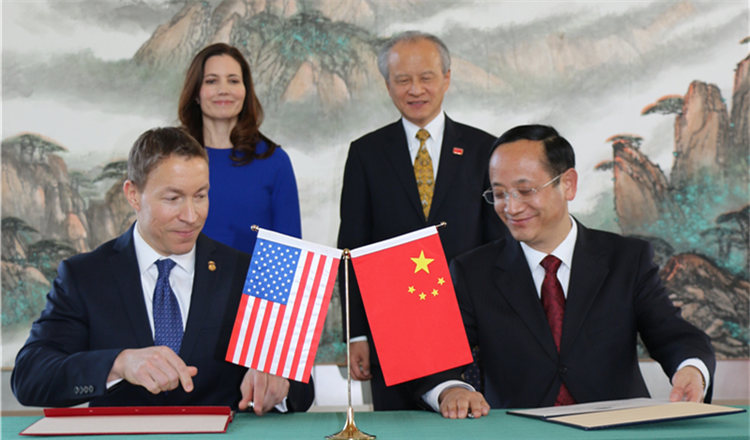Workers may get a tax break for cost of parent care
Updated: 2015-12-11 07:57
By Zhou Moin Shenzhen and Wang Xiaodong in Beijing(China Daily)
|
||||||||
Wage-earners who live with their parents in Shenzhen, Guangdong province, may soon pay lower taxes to help ease the burden of elder care.
Under a five-year plan released for public opinion earlier this week by Shenzhen's civil affairs authority, the individual income tax threshold for those who live with their parents would be increased to reflect the costs of supporting their parents.
The plan also includes accelerating the development of facilities such as nursing homes and entertainment centers for the elderly and nurturing more skilled professionals in the elder care industry.
Currently, the basic tax exemption is 3,500 yuan ($540) a month.
While nursing homes and residential communities will be encouraged to accept more seniors, most seniors are expected to stay at home and be cared for by their families, according to the authority.
Researchers welcomed the innovative policies, though some were concerned whether they could be effectively implemented.
"It is a meaningful and encouraging move to give preferential treatment to people living with the elderly, especially at a time when the traditional Chinese concept of family is gradually eroding," said Bai Ping, a researcher at the Guangdong Academy of Social Sciences.
But Bai admits that there are difficulties in implementing the policy.
For example, many young people from other cities can't afford to buy property in Shenzhen because of skyrocketing prices, and their situation doesn't allow them to live with their parents, she said.
Ma Jun, a researcher in finance and taxation at the Chinese Academy of Social Sciences, said there have been discussions in academic circles about allowing the expense of supporting the elderly to be deducted from people's taxable income, but implementing that may not be easy considering different family structures.
Liu Jie, a researcher at the Shenzhen-based think tank China Development Institute, believes the policy could reduce the cost for young people to take care of the elderly but would do little to encourage more caring behavior.
"Living with children is already the most common pattern for caring for the elderly in the country. Therefore, it may be hard to further increase the number significantly because of the new policy," Liu said.
Moreover, "a large amount of capital and human resources are required to ensure that those who receive the privilege are actually living with their parents", Liu said.
Contact the writers through wangxiaodong@chinadaily.com.cn
- People exit rebel-held area in Syrian peace deal
- Two DPRK music groups to perform in China
- False bomb alert prompts security measures at Mexico City airport
- Russia fires missiles at IS positions
- US House passes bill to tighten visa waiver program
- Obama, Modi vow to secure 'strong' climate change agreement

 US returns 22 recovered Chinese artifacts
US returns 22 recovered Chinese artifacts
 AP photos of the year 2015
AP photos of the year 2015
 Miss World contestants visit welfare center in Hainan
Miss World contestants visit welfare center in Hainan
 Giant pandas brave the cold by settling in freezing north
Giant pandas brave the cold by settling in freezing north
 World Internet Conference host Wuzhen: Charming water town
World Internet Conference host Wuzhen: Charming water town
 7 half-pound mutts become first test-tube puppies in world
7 half-pound mutts become first test-tube puppies in world
 Panchen Lama enthronement 20th anniversary celebrated
Panchen Lama enthronement 20th anniversary celebrated
 Printer changes the chocolates into the 3rd dimension
Printer changes the chocolates into the 3rd dimension
Most Viewed
Editor's Picks

|

|

|

|

|

|
Today's Top News
Shooting rampage at US social services agency leaves 14 dead
Chinese bargain hunters are changing the retail game
Chinese president arrives in Turkey for G20 summit
Islamic State claims responsibility for Paris attacks
Obama, Netanyahu at White House seek to mend US-Israel ties
China, not Canada, is top US trade partner
Tu first Chinese to win Nobel Prize in Medicine
Huntsman says Sino-US relationship needs common goals
US Weekly

|

|








